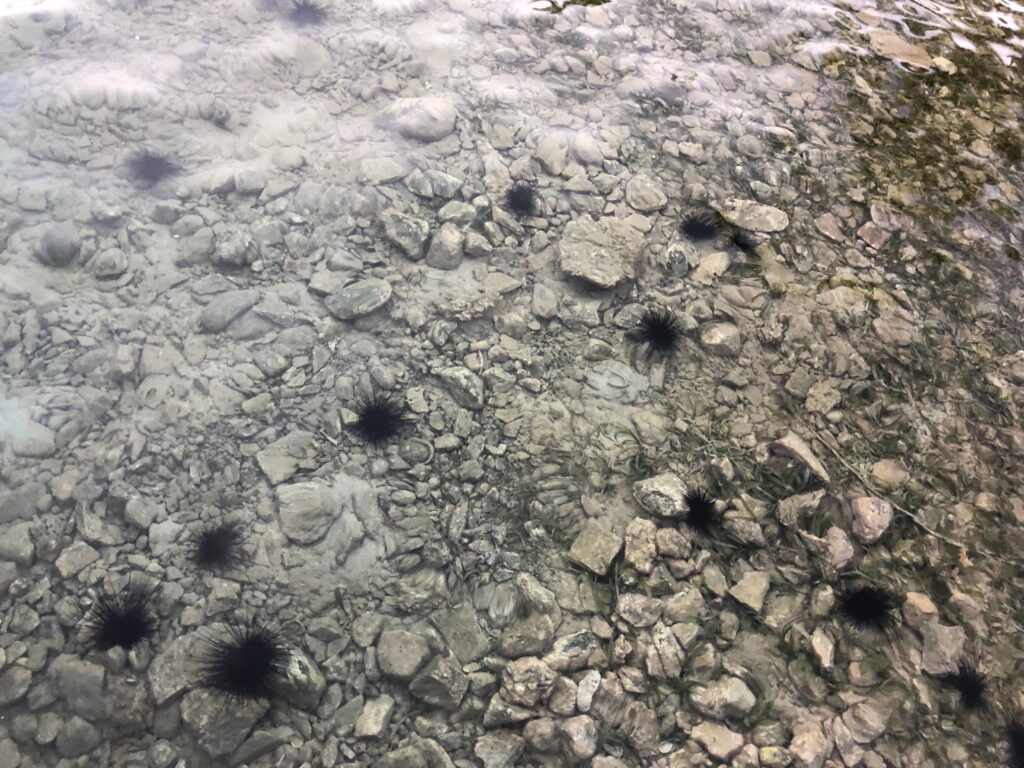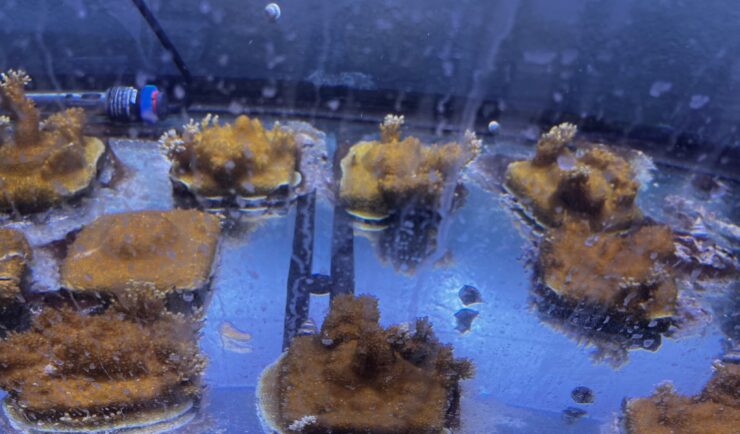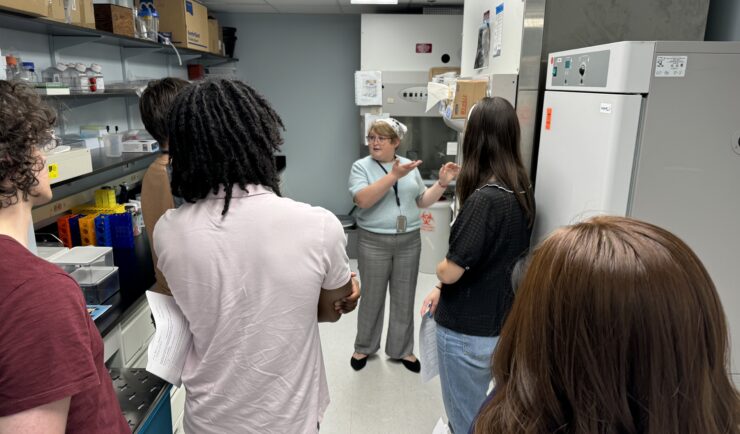

A diver collects a long-spined sea urchin. Credit: Blake Gardner
Our employee owners were recently part of a team of detectives on a mission to discover the killer of long-spined sea urchins, Diadema antillarumy, throughout the Caribbean Sea. The infected urchins lose their spines, leaving them more vulnerable to predation or dying after a few days. In 1983 the same species experienced mass mortality with identical symptoms, but scientists were unable to discover the culprit. Forty years later, the issue resurfaced, and a team of scientists joined forces to unlock the mystery.
CSS employee owners, supporting NOAA’s Coral Reef Conservation Program and NOAA’s Office for Coastal Management, joined a team of scientists in diving to collect urchin samples at 23 sites around the Caribbean Sea. By providing the samples, the researchers were then able to examine and test the urchins and compare them to healthy urchins to determine the cause of the mortality.
Due to this rapid response, scientists determined the cause of the issue within three months
Our staff coauthored this paper documenting the process. https://www.science.org/doi/10.1126/sciadv.adg3200

Researchers examine a long-spined sea urchin. Credit: Leslie Henderson
See More CSS Insights

Studying Corals for Future Protection and Restoration
Coral reefs are under threat from warming waters, disease, degraded water quality, and other stressors. Several shallow water coral species are listed as threatened under the Endangered Species Act. Our team of coral scientists on contract with NOAA’s National Centers for Coastal Ocean Science are studying coral reproduction, and genetics, and the environmental factors that…
CSS Announces New Strategic Partnerships for Civil and Commercial Markets
CSS Inc. proudly announces new strategic partnerships aimed at addressing growing markets in Low Earth Orbit (LEO) and lunar environments. These partnerships are designed to build a team of complementary capabilities in response to opportunities from NASA’s $478 million Research, Engineering & Mission Integration Services-2 (REMIS-2) contract, for which CSS was selected in 2023. Together…

Training the Next Generation of Researchers
CSS staff support the National Institutes of Health (NIH) Division of Occupational Safety and Health by providing Safe Techniques Advance Research Science (STARS) training to summer interns. Following a pause during the pandemic, staff resumed training May 15, 2024. During the in-person STARS training, CSS staff cover key concepts from the pre-requisite NIH Lab Safety…
